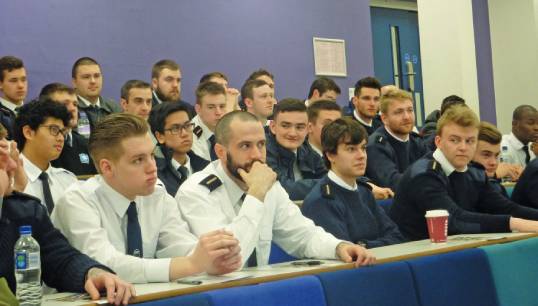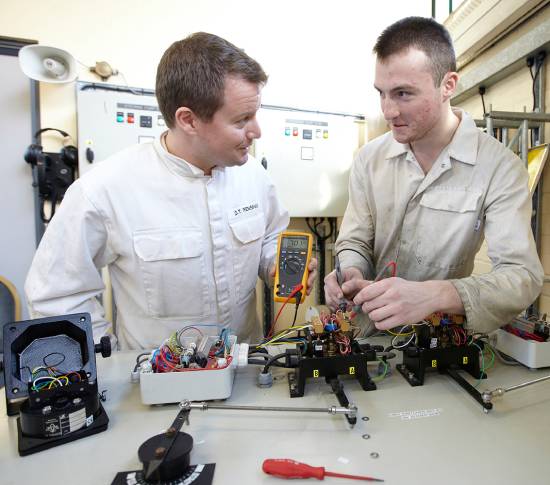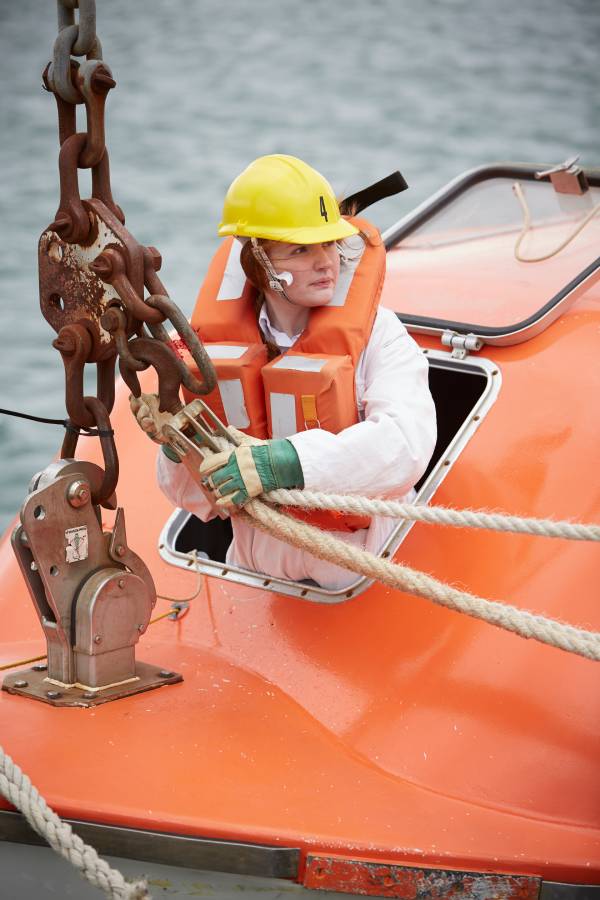
The Cadet Training & Modernisation (CT&M) Programme is currently labouring to improve the experience for UK cadets – including on sea time. Rob Coston looks at the good work being done this year, but also how a funding issue is hampering efforts
Back in 2021, the Maritime Skills Commission – on which Nautilus general secretary Mark Dickinson sits as a commissioner – made a raft of recommendations to modernise UK cadet training.
These recommendations included everything from full funding for cadet training, right through to a revision of maritime syllabi to ensure training is fit for purpose.
Crucially – since Nautilus continues to hear horror stories from cadet members – they included a recommendation to overhaul sea time, making sure that sponsors and training companies fulfil their obligations to cadets.
'Government has actually set out some ambitious goals and seem to be intent on implementing them as far as possible – which is a good thing,' says Nautilus head of Professional and Technical David Appleton.
'We are largely supportive of the recommendations of the MSC report and continue to be hopeful they are implemented in the sprit intended.'
A two-year project to implement the recommendations, called the Cadet Training & Modernisation (CT&M) Programme, is now three-quarters of the way though. What progress has been made so far, and what important steps still need to be taken?
Funding for junior officers
As noted in previous Telegraphs, a major win was achieved recently when the government agreed to increase funding of cadetships from 30 to 50%. However, the original MSC recommendation was for 100% funding, something that was also backed by the Department for Transport. Nautilus is, of course, extremely pleased that this initial step has been taken, but believes that 100% funding is necessary and will continue to push for it.
At the same time, funding was announced for training of junior officers on their second Certificate of Competency (CoC).
While the rates of pay for a UK master and a master from another country is relatively similar, junior officers from the UK are often more expensive for shipping companies to employ than their counterparts from other parts of the world. This new funding will help to address the problem, as shipping companies will be able to claim money through these subsidies for providing sea time towards obtaining a second CoC. It is hoped that this will improve employment prospects for junior officers, including Nautilus members.
Syllabus changes

'One of the key pieces of work for the CT&M was to go through the entire syllabus line by line, look at each competency there and decide whether these should be modernised, ditched, or have the emphasis increased or reduced,' Mr Appleton says.
This process has now been completed for the deck, engine and ETO syllabi. These have been published and members have been asked for their views.
Nautilus is generally happy with the outcome, but will also be supplying comments.
Once the syllabi are finalised, they will be rolled out across UK colleges. Those already in college will remain on the previous syllabus, and new cadets will be on the new syllabus.
Improving your employment prospects
This syllabus review has further positive implications for Nautilus members as there is a plan to take the outcomes and submit them to the International Maritime Organization (IMO) while it performs its review of Standards of Training, Certification, and Watchkeeping (STCW).
The hope is that the UK revised syllabus will be taken by the IMO as the baseline for what is required from seafarer training worldwide.
This would help Nautilus members to compete for jobs worldwide – the current issue is that there is a gap between international minimal standards and the standard of training the UK would like to provide for its cadets. If international standards were set at the UK level, this will prevent UK-trained cadets from being undercut by those who have been trained more cheaply but less thoroughly abroad.
Better careers, long term

The CT&M Programme includes work to improve the cadet sea time experience – but this has been held up due to funding issues. Image: WMA
A further piece of work being conducted by the CT&M Programme is around career pathways. This is at an early stage, with scoping completed but work about to begin.
Currently, it is difficult for cadets to map out a long-term career pathway. Prospective cadets might be told that they can go to work for a shipping company and go ashore later in their career (as most seafarers are expected to do at some point during their working lives). However, it is very difficult to tell how to progress to a career ashore – in maritime law or insurance, for example – and many people can end up stuck, without the proper qualifications to make the jump.
This CT&M work is about identifying how someone can get from, say, a cadet to a maritime lawyer or lecturer, and then identifying where there are clear gaps that could prevent someone from following this pathway.
For example, some shore-based careers want applicants to have a masters’ certificate. However, not every seafarer will have the opportunity or desire to become a master. Some companies want to keep their officers at sea and have even been resistant to provide training to help seafarers progress their career if they want to.
The MSC, however, believes that it is better if those officers are able to find the job in the maritime industry ashore than lose their expertise if they move to another sector. So, it will look to filling the gaps with training modules to help seafarers ‘top up’ their qualifications to a degree or masters, and get the qualifications they need to start a different kind of maritime career.
Stalled work
While there is much that is positive to say about the CT&M work so far, there is also a serious problem. A sub-group on funding has stalled because the MSC does not have the resources to pay for it to continue at the present time.
This funding group is supposed to cover some of the most important areas identified by the MSC review. It should be looking at things that are vital to Nautilus members, such as how to hold companies to account for the quality of training they provide, and the cadet sea time experience.
For example, if a training company/sponsor is not providing sea time it is not possible at the moment to withhold SMarT funding or remove the sponsor from the tonnage tax scheme. Nautilus frequently has to deal with situations where cadets are given inappropriate sea time experiences, or have to fight to get to sea at all – this system must be changed to ensure cadets are given appropriate berths and receive the training they need to complete their courses.
'The MCA says mechanisms will be put in place to fix the sea time experience,' Mr Appleton says, 'but there’s a risk this will be watered down or the ambition lowered if this group doesn't have the funding to continue.'
Nautilus has been generally very pleased to see that the government has so far committed to its programme for modernising cadet training, but wants to see the government provide proper funding to this particularly vital area before the two-year timescale of the CT&M programme is over.
What is the Maritime Skills Commission?
The Maritime Skills Commission (MSC) was set up in 2020 by the Department for Transport working with Maritime UK, as part of the government's Maritime 2050 strategy. Its role is to ensure a pipeline of talented people to serve all parts of the industry, covering shipping, ports, leisure marine, engineering, science and professional services.
The MSC's cadet review, released in mid-2021, made a number of recommendations on the future of cadet training. It was overseen by a working group of commissioners, including Nautilus International general secretary Mark Dickinson, and chaired by Maritime and Coastguard Agency chief executive Brian Johnson.
The Maritime Skills Commission is also carrying out a review of training for UK ratings. The findings of this review will be covered in Telegraph when they are published.
Tags
